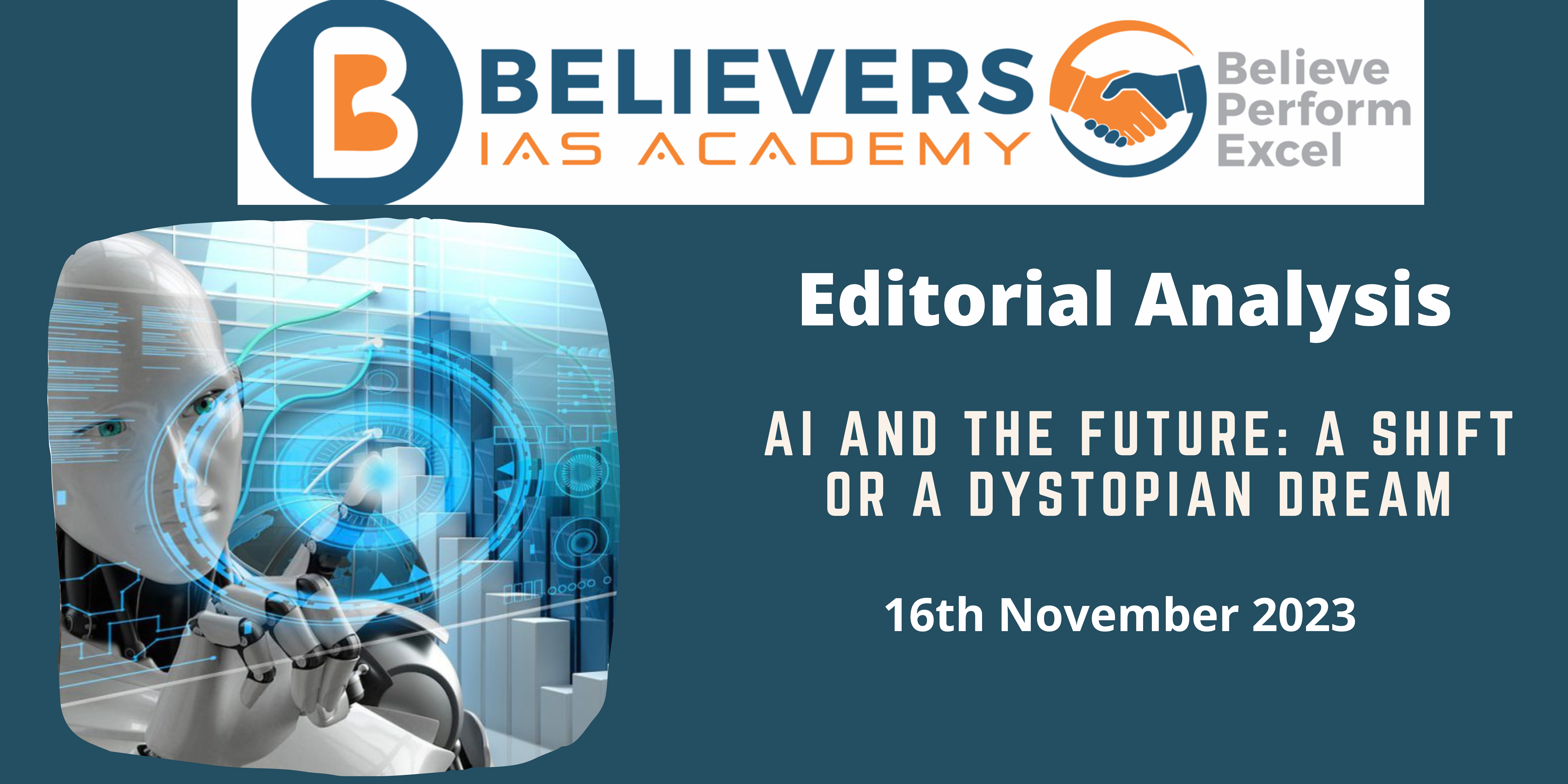AI and the Future: A Shift or a Dystopian Dream
Context:
The recent Bletchley Park summit thrust the discourse on Artificial Intelligence (AI) into the limelight, with billionaire Elon Musk envisaging a future where AI replaces all forms of human labor. This article probes the viability and desirability of such a scenario, drawing insights from contrasting perspectives of economic thinkers like John Maynard Keynes and Karl Marx.
Relevance:
GS-03 (Science and Technology)
Prelims:
- Generative Artificial Intelligence
- AI
- Generative Adversarial Network
- Variational Autoencoders (VAEs)
- National Strategy for Artificial Intelligence
Mains Question:
Critically analyze the implications of a future where AI eliminates the necessity for human work. (150 words)
How is Global AI governed?
- India: NITI Aayog has issued guidelines on AI issues like the National Strategy for AI and the Responsible AI for All report. It underscores social and economic inclusion, innovation and trustworthiness.
- United Kingdom: A Five point principle that companies should follow: Safety, security and robustness, transparency, fairness, accountability and governance, contestability and redress.
- Unites States: It has released a Blueprint for an AI Bill of Rights (AIBoR), outlining the harms of AI to economic and civil rights.
- China: Came up with world’s first nationally binding regulations targeting specific types of algorithms and AI. Also has enacted laws to regulate as to how AI should disseminate information.
Dimensions of the Article:
- Thinkers View Points
- Neglect of Economic System in AI Discourse
- Musk’s Vision and Capitalist Realities
Thinkers View Points:
- Keynesian Optimism: Work as Drudgery
- John Maynard Keynes, a proponent of capitalism, envisioned a future where technological advancements lead to reduced working hours, enhancing overall welfare.
- The idea revolves around liberating individuals from the drudgery of excessive labor, fostering a positive outcome.
- Marxian Nuances: The Essence of Humanity in Work
- For him, the essence of humanity lies in the humans ability to materially manipulate the nature.
- Karl Marx, in contrast, posited that work is intrinsic to human identity, providing meaning and purpose. However, he critiqued capitalism for alienating laborers from the fruits of their work.
- Marx’s vision emphasizes not the elimination of work but the liberation of labor from capitalist exploitation.
Neglect of Economic System in AI Discourse
- The article highlights a critical oversight in current AI discussions — the neglect of the economic system.
- It scrutinizes the hypothetical situation where AI replaces all forms of labor, emphasizing the implications within the existing capitalist framework.
- Under the current capitalist system, access to basic resources is tethered to income derived from work. The article questions the feasibility of a world without work within the confines of capitalism, as it may result in deprivation for those unable to secure employment.
Musk’s Vision and Capitalist Realities
- According to Mr. Musk – work would be available for those who desire it for personal reasons. However, in a capitalist world, labour has no choice but to seek out work if they are to feed and clothe themselves.
- But, Elon Musk’s vision of a world with optional work clashes with the inherent compulsion of labor to seek employment for survival in a capitalist society.
- The incongruity raises crucial questions about the adaptability of modern capitalism to such revolutionary changes.
- Contemplating an alternative economic landscape, the article envisions a scenario where AI generates surplus, part of which is redirected to individuals for their basic needs. This prompts inquiries into the institutional changes required and the willingness of the existing system to embrace such transformations.
Way Forward:
- The way forward necessitates an exploration beyond the boundaries of capitalism. It urges a profound examination of institutional arrangements to determine the feasibility of a world where AI renders traditional labor redundant.
- Central to the discourse is the redefinition of income sources. The article posits the need for institutional shifts, prominently featuring universal basic income as a primary income source, disrupting the conventional wage labor paradigm.



